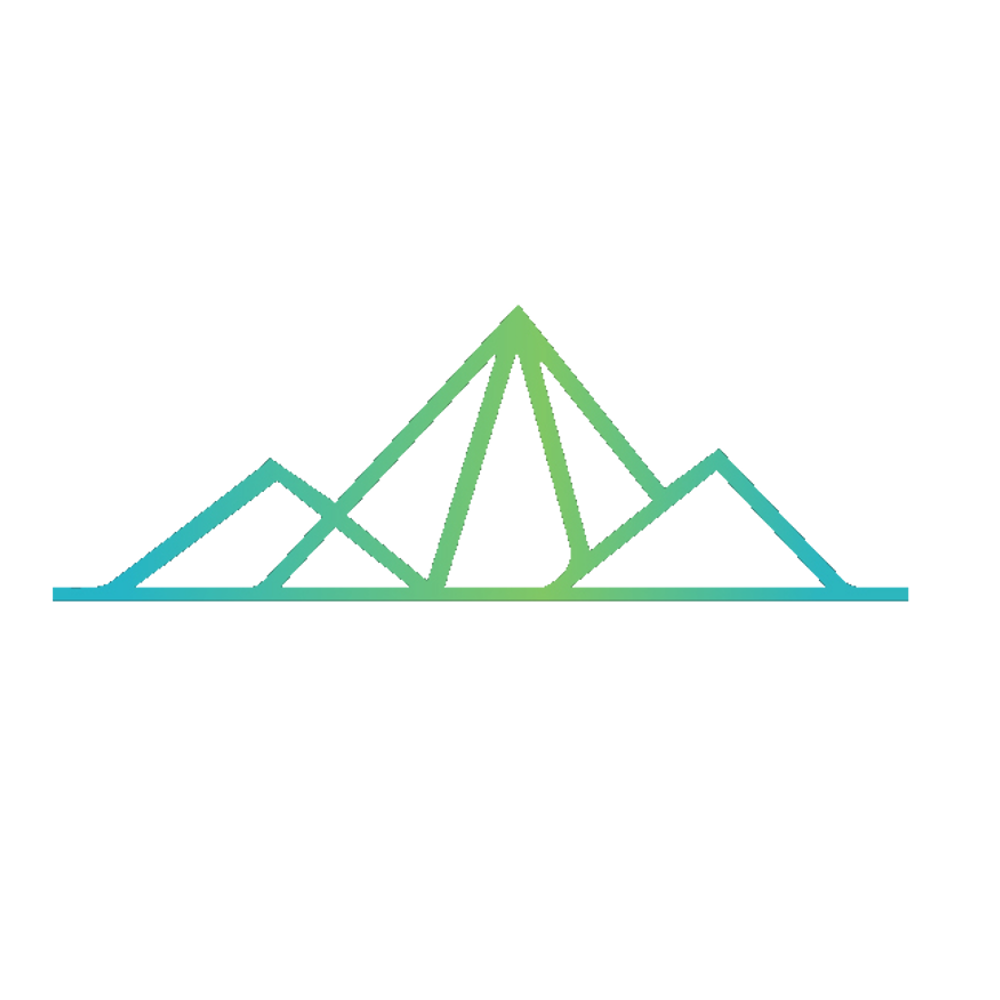I'm sharing the routine that has worked for me after years of self-experimentation, biomarker tracking, and extensive reading of the literature.
My core philosophy is that life is boring without variation, so I'm never too rigid. This routine represents about 85-90% of my days. The other 10-15% is spent on things that bring me joy and meaning, even if they aren't "optimal." Resilience is a biohack, too.
1. Sleep
I prioritize sleep quality most nights, but I also accept that the richest life experiences sometimes require sacrificing it. I have no problem losing sleep for travel, epic adventures, or meaningful social time.
My Sleep Routine:
- T-Minus 2 Hours: I start winding down from mentally stimulating activities. The lights go down, I'll have a sleep-blend tea, and I consciously start turning my brain off.
- T-Minus 1 Hour: All screens (phone, computer) are off. I'll often do some gentle stretching and then read fiction or non-technical non-fiction.
- Sleep Kit: I use earplugs and an eye mask every single night. Making these staples of my routine means I'm accustomed to them, which makes travel significantly easier. I also take a few pre-sleep supplements, covered below.
2. Exercise
My training evolves with my goals to keep things fresh and motivating. The routine below is my baseline when I'm not training for a specific event like my current marathon prep. My big weekend adventures always take priority, and I'll throttle my weekly workouts to ensure I'm ready for those.
Strength: 2-3 Days/Week (Aim for 3, but life happens and sometimes recovery wins.)
- Workout A (Legs/Push): Squats, dumbbell lunges, goblet squats, calf work, pushups, shoulder press.
- Workout B (Legs/Pull): RDLs, glute activation, hamstring curls, pullups, rows, face pulls.
- Workout C (Intuitive/Accessory): This is for whatever needs extra work. It often looks like sled pushes/pulls, kettlebell swings, box jumps, core work, or even some arm work to satisfy the inner bro.
Cardio: 2-3 Days/Week
- Workout A: 40-60 minutes of Zone 2 cardio, either running or mountain biking.
- Workout B (The Big One): My passion is long and intense mountain adventures. Every weekend, I'm doing a long-mileage, high-vertical day. This could be a huge mountain bike ride, backcountry skiing Colorado’s tallest peaks, or a long trail run/climbs.
- Workout C: Another 40-60 minutes of Zone 2, focused on doing something fun like trail running or mountain biking.
I sprinkle in mobility, stability, and work on weak areas (like my current focus on foot strength) in small gaps throughout the day or as warmups.

3. Diet
My diet is built to support strong metabolic health, hit my macro/micronutrient and fiber targets, and fuel my training. I have no problem downing simple carbs around workouts for better performance. The majority of my food comes from whole sources, but I don't stress the small stuff.
While I’m not rigid, I follow a few guiding principles:
- Protein Target: I aim for about 0.8 grams of protein per pound of body weight to support muscle mass and recovery.
- Fiber Intake: I make sure to get 40+ grams of fiber daily from whole foods.
- Gut Health: I eat fermented foods like Greek yogurt or kimchi most days.
- Time-Restricted Eating (TRE): I naturally fall into a 14:10 eating window, especially on non-training days when I skip breakfast.
The human body is incredibly resilient. People have survived for months on tree bark; a "cheat meal" isn't going to derail your health. If you nail your overall energy balance and eat well most of the time, you aren't missing major longevity gains. For those who want a prescriptive plan, the research points towards a Mediterranean-style diet.
An Example Day:
- Pre-Workout (if training): Oatmeal, blueberries, and honey. On non-training days, I skip this.
- Post-Workout/Breakfast: A shake with almond milk, grass-fed protein powder (⅔ unflavored, ⅓ flavored), 10g collagen peptides, chia seeds, flax seeds, and frozen blueberries. I add almond butter on days I need more calories. On weekends, I'll often have eggs instead.
- Lunch: This is provided by my work, so I have little control. I enjoy whatever meal is brought in and eat very large portions.
- Snacks: If I'm still hungry, I'll grab what's available at work: unflavored Greek yogurt, hard-boiled eggs, almonds, or fruit. I love free food.
- Dinner: This varies but is always built around a protein (turkey, chicken, beef), a carb (quinoa, sweet potato, rice, lentils), and veggies (broccoli, brussels sprouts, salad). My go-to is an Asian-style bowl with a little teriyaki and sriracha. I will cook veggies and make all dressings with health does of EVOO.
4. Supplements & Meds
This list changes based on my goals, latest bloodwork, and new research that interests me.
Core Supplements:
- Magnesium: ~400 mg of elemental mag (I rotate between Glycinate, L-Threonate, and Taurate) taken before sleep.
- Fish Oil: 1500 mg taken with meals.
- Creatine: 5 grams daily.
- Vitamin D: 1,000-5,000 IU daily, depending on the season and sun exposure. My goal is a blood level of 40+ ng/dL.
- Vitamin K2: 45mcg 3-4 days a week taken with Vitamin D
- Boron: 3-6 mg. I have elevated SHBG, and this helps. I may cycle off to test the impact, but I'm sticking with it for now.
- Methylated B-Complex: Taken 3x a week (B12 + Folate)
- ALA (Alpha-Lipoic Acid): 600 mg daily.
- Lutein + Zeaxanthin: Taken 3x a week for eye health.
- Glycine: 2 grams taken 30 minutes before bed (taken as needed).
- Zinc: 15 mg daily (not always taking this)
- Multivitamin: I only take ½ of a serving on days my diet is clearly lacking, which averages out to ~2 times a week.
- Taurine: 1-2 grams daily (new addition)
Situational Supplements:
- When Sick: 500-1000mg Vitamin C + 90mg of Zinc.
- Curcumin: When extra sore from a massive workout or adventure.
- Alpha-GPC: For an extra cognitive or physical boost before a workout.
- Phosphatidylserine (PS100): To lower cortisol after an intense evening workout that might disrupt sleep. Also useful when traveling and getting sleep.
- Ashwagandha: Cycled during periods of intense stress from work or travel.
- NMN/NR: I’ll add some NMN/NR when traveling or getting less exercise in. With my NAD+ levels I don't see the need to take this daily.
Prescription Drugs:
- Ezetimibe: My ApoB is higher than I'd like. Since diet had little impact, I use Ezetimibe to get my levels into my ideal range without having to obsessively avoid saturated fat.
- Rosuvastatin: I am just starting to experiment with very small doses <2.5mg daily to push my ApoB a little lower – TBD if I will keep in routine
- Trazodone (25mg): For rare situations where stress is exceptionally high and I know it will impact my sleep (e.g., certain types of travel).
5. Monitoring & Diagnostics
I use data to verify what I'm feeling and to ensure my routine is actually working. I don't obsess, but I track a few key things:
- Annual CGM: I wear a Continuous Glucose Monitor (CGM) for a few weeks each year. It's a quick and effective metabolic spot-check to see how my body is handling food, sleep, and stress.
- Daily HRV: I track my Heart Rate Variability (HRV) every morning. It's my simple, go-to metric for recovery and helps me decide whether to push hard in my workout or take it easy.
- Regular Bloodwork: Every 6 months, I get bloodwork done. This is how I track key markers like ApoB, inflammation (hs-CRP), fasting insulin/glucose, and Vitamin D to confirm everything is on the right track. HERE is a deep dive on my most recent bloodwork
My preferred company for blood testing is GoodLabs. I have found that they have the best prices and support. They also allow people to get free lab tests when donating blood which is a win for everyone involved.
6. Other Stuff That Matters
- Hobbies & Projects: I have engaging projects outside my demanding main job that are intentionally in different domains (e.g., artistic and technical). This provides a vital change of perspective, acts as a release valve from work, and keeps me learning. That variety is key to being a more flexible and interesting person.
- Red Light Panel: I use it ~2 times a week, mostly on rest days for extra recovery. The skin health research is promising, but I'm not expecting miracles. I got a good deal on it.
- Sauna: I'd love one but haven't pulled the trigger. I firmly believe you can get many of the same heat-shock protein benefits from exercise-induced core temperature increases.
- My Cat: She is super chill and loving. A purring cat on your lap is a proven stress-reduction biohack.
- Social Connections: life's less fun without them

My Guiding Philosophy
The biggest thing missing in the biohacking space is the optimization of one's life as a whole. A longer life lacking meaning, joy, and rich experiences is not better than a shorter one filled with them.
- Optimize for a life well-lived and stories to tell. Being healthy is great for lifespan, but it's far more impactful for making the most of every moment and being able to do cool shit (whatever that means to you). Hearing Bryan Johnson say that a simple trail run is extremely "risky" made me lose all respect for his approach to life. Ask yourself, “what am I optimizing for.”
- Don't judge others. Don't resent people who see the world differently and prioritize their energy differently.
- Vet your own ideas. Never be too confident in a concept you haven't personally vetted and don't deeply understand. Being a nonconformist for its own sake is just as foolish as blindly following trends.
- Connect with everyone. If you can't talk and connect with people from any walk of life, you lack sophistication or you're too elitist. Neither is a good look.
- Know when to stop optimizing. Once you've captured 80-90% of the potential gains, your time may be better spent elsewhere. At this stage consciously decide where you want to put your time/energy.
- Embrace stillness. Stillness isn't a lack of motion; it often leads to better long-term results. We schedule rest days for our bodies; we need to schedule them for our minds and our ambitions, too.
- Protect your energy. Your energy is finite. Stop spending it on things you can't control.
- Perspective: I regularly remind myself that none of this matters if it becomes obsessive. Over-optimization is often a way to distract ourselves from something that truly scares us.
- Embrace antifragility. Don't just be resilient to chaos; benefit from it. Your body and mind grow stronger from occasional, intelligent stressors—a missed night of sleep for a great adventure, a challenging workout, a change in diet. A perfectly stable routine creates fragility; intentional variation builds a robust human.
- Your routine is a tool, not an identity. You are not "a biohacker"; you are a person who uses biohacking tools to live better. When your identity is separate from your practices, you gain the freedom to modify or even skip them based on the needs of your life, not the needs of a label. It allows you to eat the birthday cake and be fully present, without a shred of guilt.

